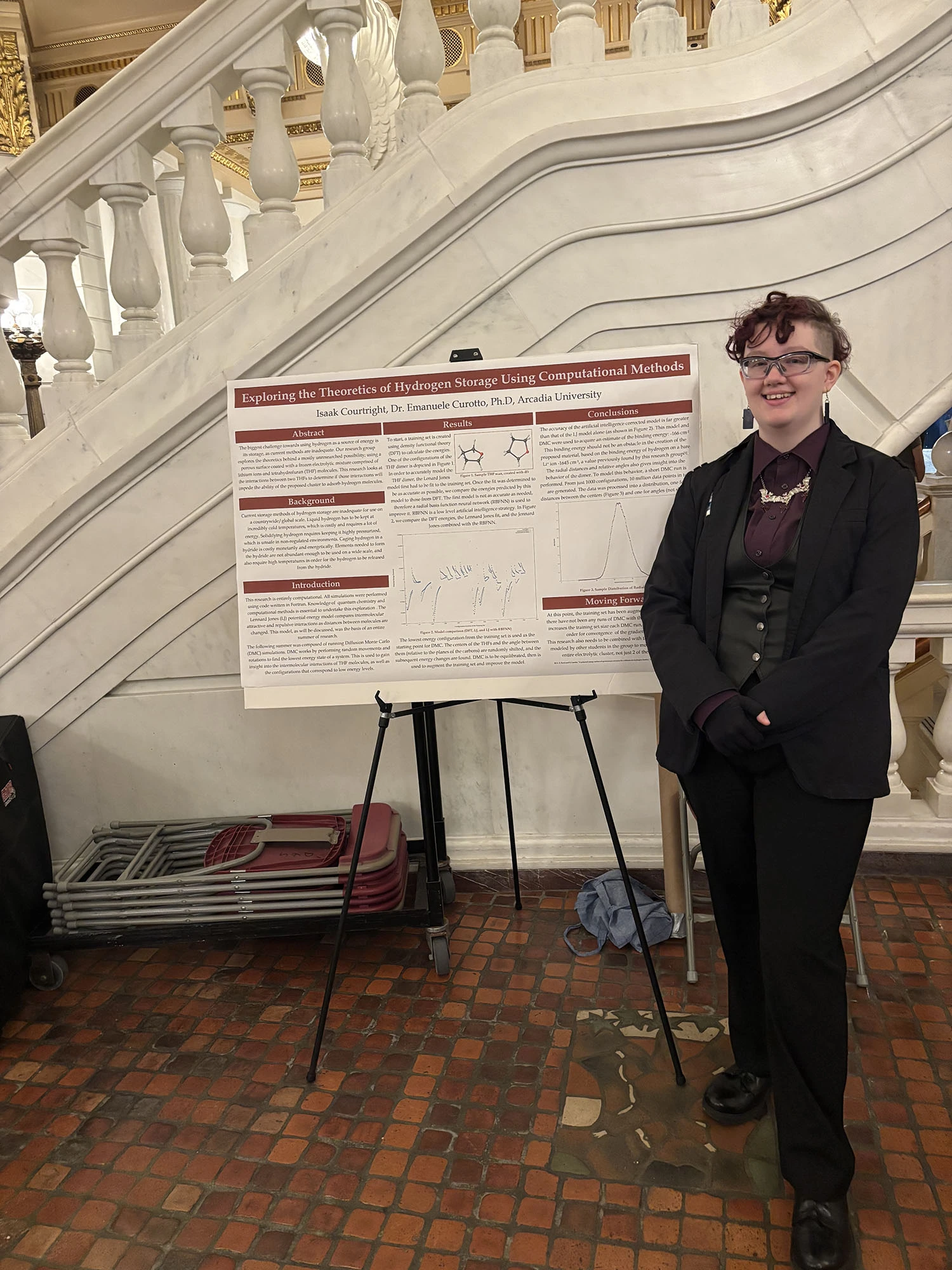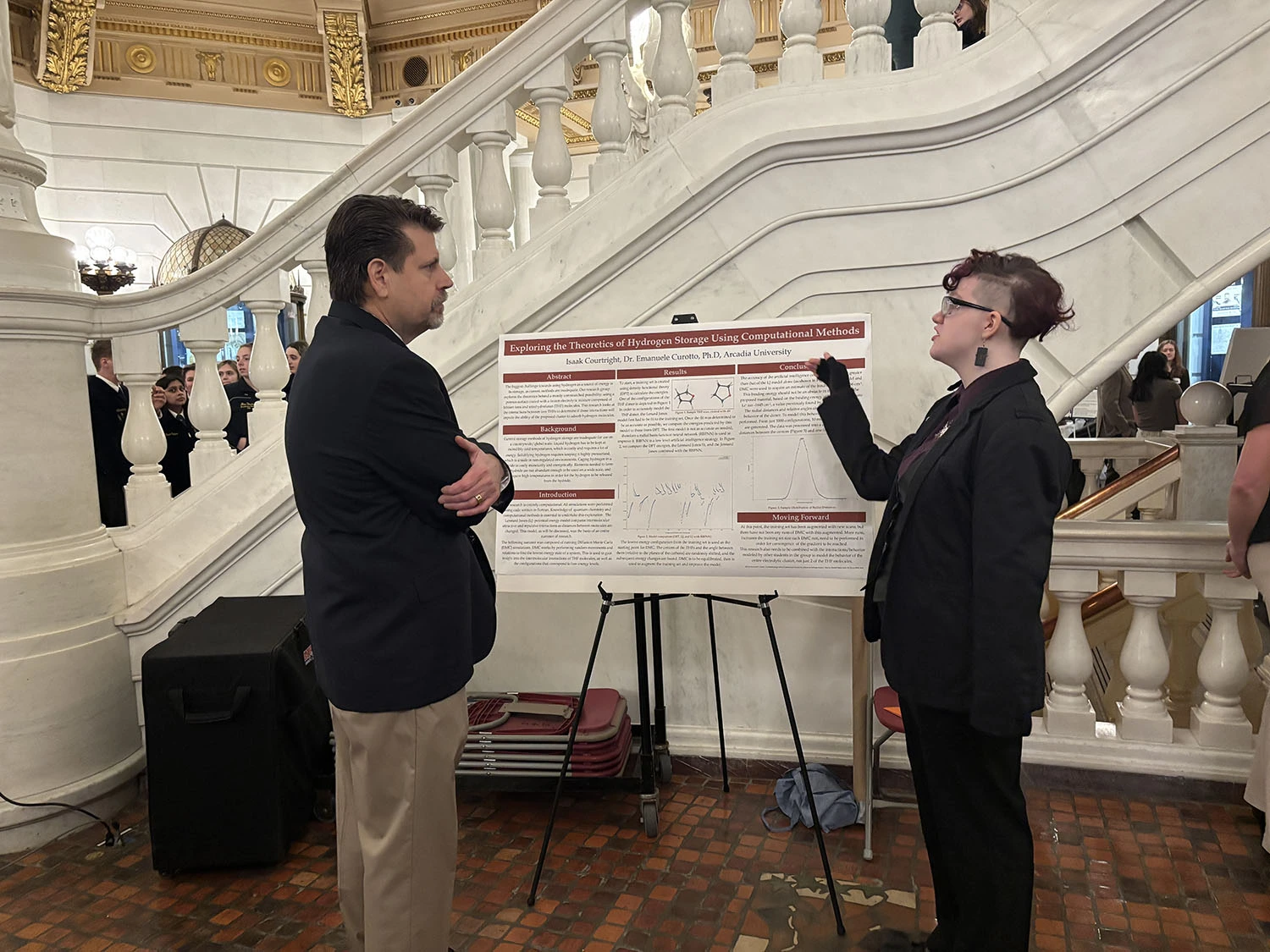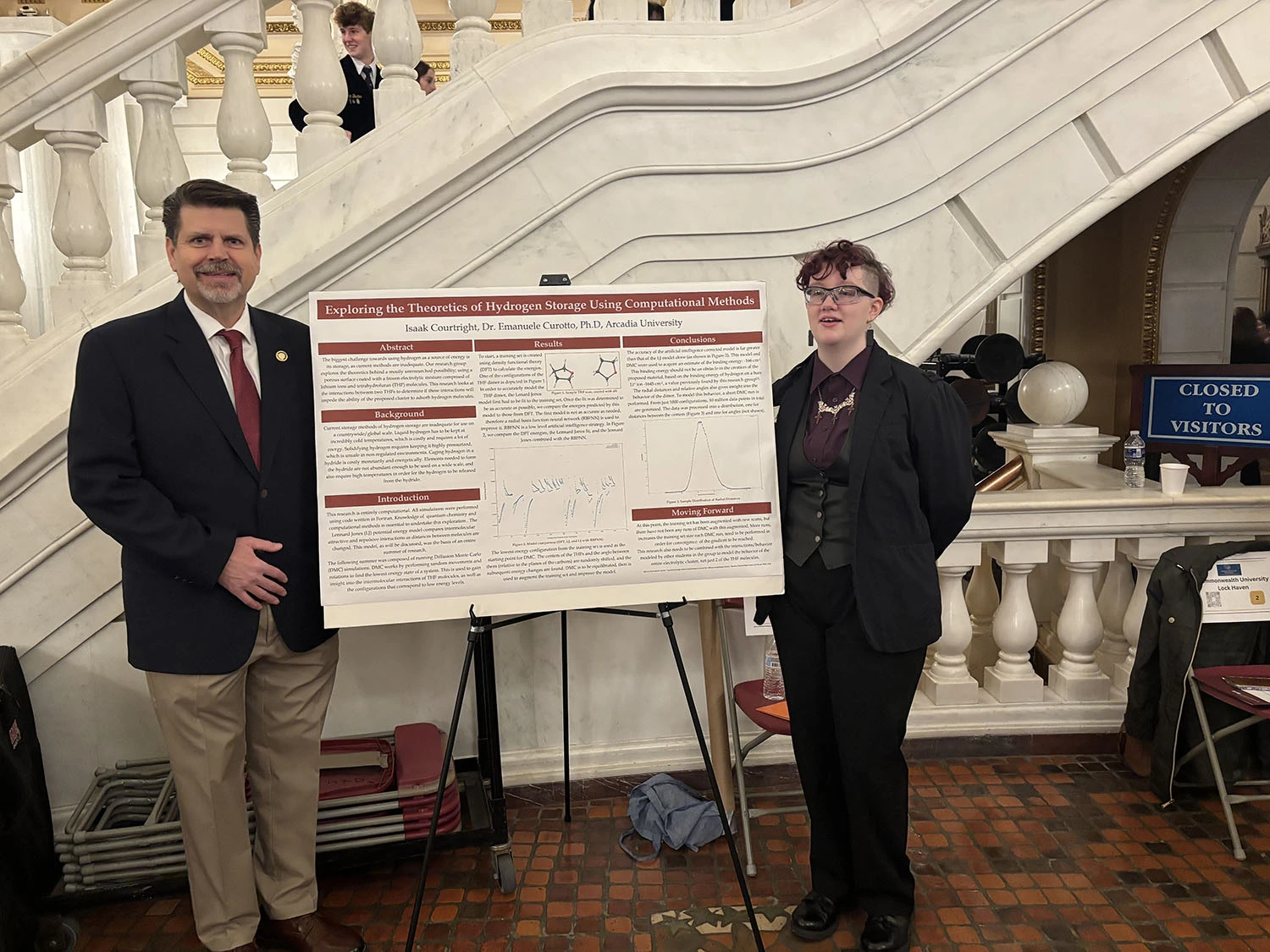Courtright ’26 Presents Chemistry Research to Lawmakers at Harrisburg Conference

Junior Chemistry major Isaak Courtright presented his research at the Undergraduate Research at the Capitol – Pennsylvania (URC-PA) conference in Harrisburg on March 25, where he had the opportunity to engage with state legislators about his scientific work.
Titled “Exploring the Theoretics of Hydrogen Storage Using Computational Methods,” Courtright’s research focuses on understanding quantum-level interactions between tetrahydrofuran (THF) molecules, which play a role in a proposed hydrogen storage method. He has been conducting research for the past two summers under the mentorship of Dr. Emanuele Curotto and has picked up where Dr. Curotto’s previous research groups left off.
“Based on prior research in this group, my research suggests that THF to THF interactions between 2 molecules should not impede the creation and efficacy of the composite in real life,” explained Courtright. “This research is not done yet, but these results bring us one step closer towards it being feasible to consider physical testing.”
Assistant Dean for Honors and Accelerated Programs Helene Klein encouraged Courtright to apply to present at URC-PA, and despite his doubts, he was selected to represent Arcadia University at the conference.
“I applied through Arcadia’s process to be our school’s candidate, not actually expecting to be accepted,” Courtright said. “I assumed someone who did research related to public policy/law would’ve been picked over someone who is researching theoretics of a hydrogen storage method.”
During the conference, Courtright met with Representative Jeff Olsommer of Pike County, where Courtright’s hometown of Milford, Pa. is located.
“When I first started talking about my research, he and his assistant, Melissa, seemed confused and out of their depth,” he said. “However, as I went on, I could tell they were starting to understand what I was saying and they started asking questions and tying my research into certain propositions that have been brought up to the House recently.”


While presenting, Courtright honed his ability to explain his research and other scientific concepts to an audience of non-scientists.
“At the conference, a bunch of people passed by and looked like they were interested but said ‘I don’t understand what that is,’ ‘That’s above my pay grade,’ etc.,” he said. “I was able to convince many of them to at least let me try to explain it to them, and many of them seemed to understand what I was saying and asked questions.
After graduating this spring, Courtright plans on attending graduate school to earn a master’s degree in Analytical Chemistry and then to work in that industry, promoting a broader understanding of science along the way.
“Research experience is incredibly vital to getting into grad school and industry, and showing that I not only can perform research but that I am also able to present that information at conferences shows a deeper understanding of the content,” he explained. “This also ties in with my hope to help increase scientific literacy as a whole, as a lot of recent negative policy changes and trends in the American populace stem from a lack of understanding or unwillingness to understand how science and technology actually work in the world.”


